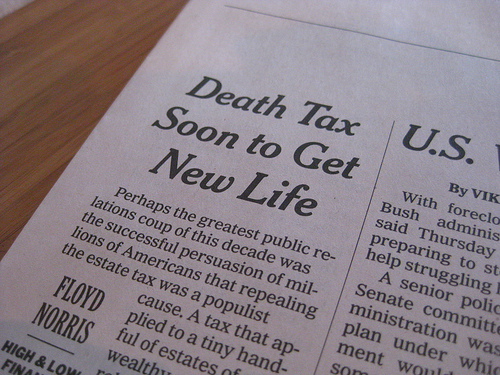Here’s an ugly example of why supporters of the Patient Protection Act should avoid the term Obamacare:
As you can see, the term directs attention away from the law’s moral purposes and toward Barack Obama the man. Continuing to call the Patient Protection and Affordable Care Act Obamacare encourages this sort of thinking and behavior.
“The Nebraska Democratic Party believes that affordable, accessible, quality health care is a basic human right.”
The Nebraska Democratic Party is asking the candidate to pull this ad. While the party’s statement deplores the violence against an image of the president, it does not mention the party’s platform position on the moral issue of access to health insurance: that “affordable, accessible, quality health care is a basic human right” (p. 39).
I wish it would. Why isn’t this truth being shouted from the housetops? Do you know?
![Protesting: It's just un-American. A message from the Ministry of Homeland Security. Photo Credit: Flickr user Lost in Transit [Keep St Joe Weird]](http://www.framology.org/wp-content/uploads/2014/04/UnAmerican.png)


